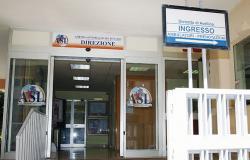Dysphagia, or difficulty swallowing which usually appears gradually, first for solid foods and then for liquid foods, together with pain when swallowing, a progressive weight loss and a decrease or alteration in the tone of voice because the tumor affects the nerves that govern the mobility of the vocal cords. These are the first symptoms of esophageal cancer, which in over half of Italian patients is still discovered at an advanced stage, when it is very difficult to treat. So, unfortunately, it remains one of the cancers with the worst prognosis and less than 20% of patients are alive five years after diagnosis. From the annual conference ofAmerican Society of Clinical Oncology (Asco), However, news is arriving that is destined to change the current standard therapies both for patients with a locally advanced esophageal adenocarcinoma and for those with a gastric or gastroesophageal junction neoplasm.
Chemotherapy before and after the operation
The results of the German ESOPEC study (phase three, the last before the approval of a new treatment) were exposed during the plenary session of Asco 2024, the one reserved for the most important news, and provide the answer to a question that has been much debated among oncologists for years: what is the most effective strategy for patients with locally advanced and therefore operable adenocarcinoma of the esophagus? Is chemotherapy before and after surgery better or preoperative chemo-radiotherapy?
For the ESOPEC study, 438 patients with locally advanced esophageal adenocarcinoma and candidates for surgery were enrolled in 25 German hospitals with the aim of verifying which of the two strategies (both currently used in Europe and the USA) gave the best results.
«Now we have the answer – he explains Filippo Pietrantonio, head of gastroenterological medical oncology at the IRCCS Foundation National Cancer Institute of Milan -, when possible it is It is preferable to proceed with chemotherapy before and after surgery (it is the so-called FLOT regimen, based on three drugs: fluoruracil, oxaliplatin and docetaxel). There average survival of participants it was in fact 66 months (i.e 5 and a half years) in those who received FLOT, compared to 37 months (just over 3 years) for those who underwent preoperative chemo-radiotherapy”.
Furthermore, after three years, the risk of death was 30% lower in patients treated with FLOT.
Italian research
At the Asco conference, which just ended in Chicago, the results of an Italian academic study (i.e. not sponsored by pharmaceutical companies, but independent) were also presented, in which 31 centers widely distributed throughout the national territory participated.
The 280 participants in the ARMANI study, all with a HER-2 negative gastric or gastroesophageal junction carcinomainoperable or locally advanced, received standard first-line chemotherapy for three months.
«After three months, the patients with stable disease were divided into two groups – explains Pietrantonio, lead author of the study -: one half continued traditional chemotherapy for a further three months, as per practice; the other half, however, was treated with one different scheme (based on paclitaxel plus ramucirumab). The results indicate that, after the first three months, it is better to switch to the “new” combination: in this way, in fact, better results are obtained.” The risk of patient death was reduced by 25%, just as disease progression-free survival was longer (i.e. the time that passes before the tumor starts to grow again: 6.6 months compared to 3.5). «With paclitaxel plus ramucirumab it is also possible to better control the disease and, although the side effects are higher (as we must prepare to manage them as best we can, as we do with other treatments already known and used), the patients’ quality of life is good – concludes Pietrantonio, member of the board of directors of the Italian Oncology Association medical (Aiom) -. We are looking for more effective treatments in patients with these difficult and aggressive neoplasmswhich can prolong their lives and bring benefits to their daily lives.”





